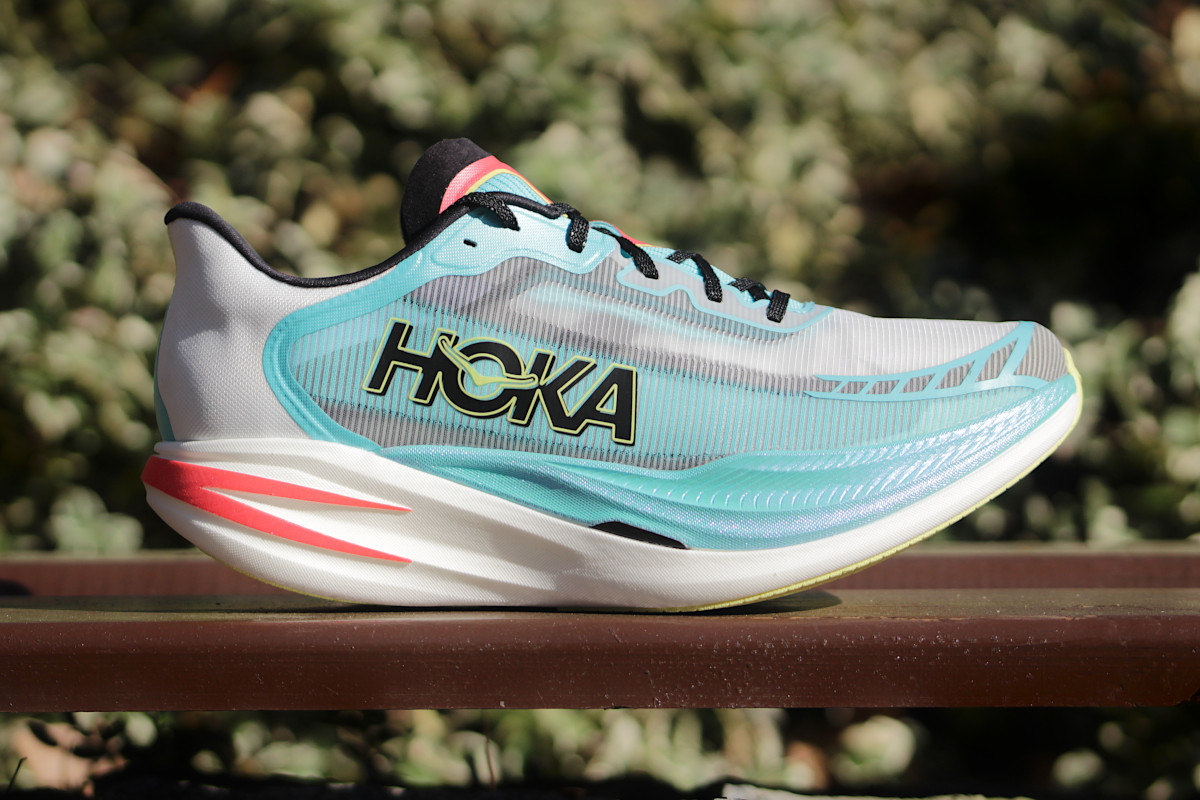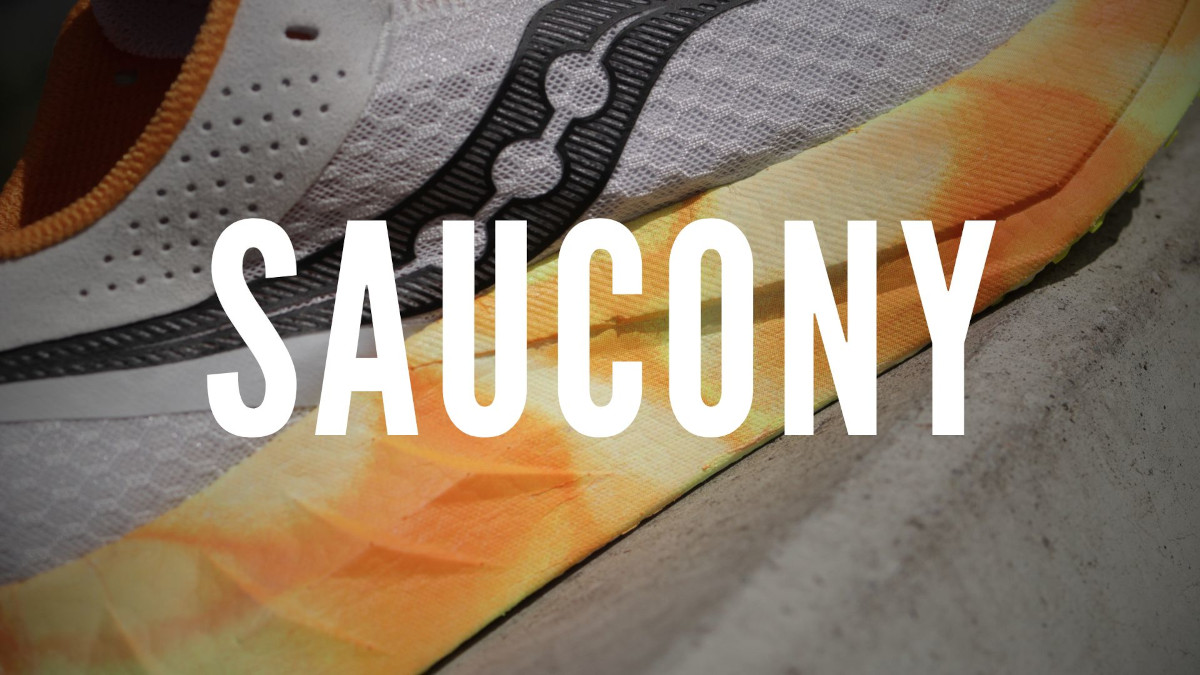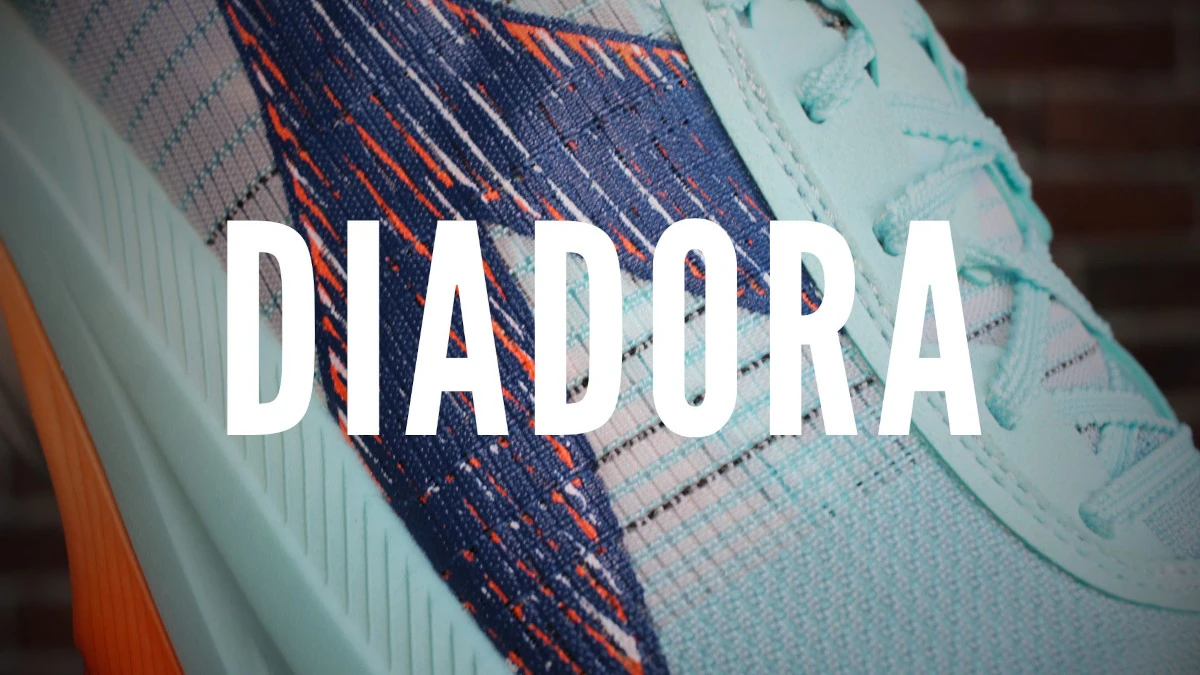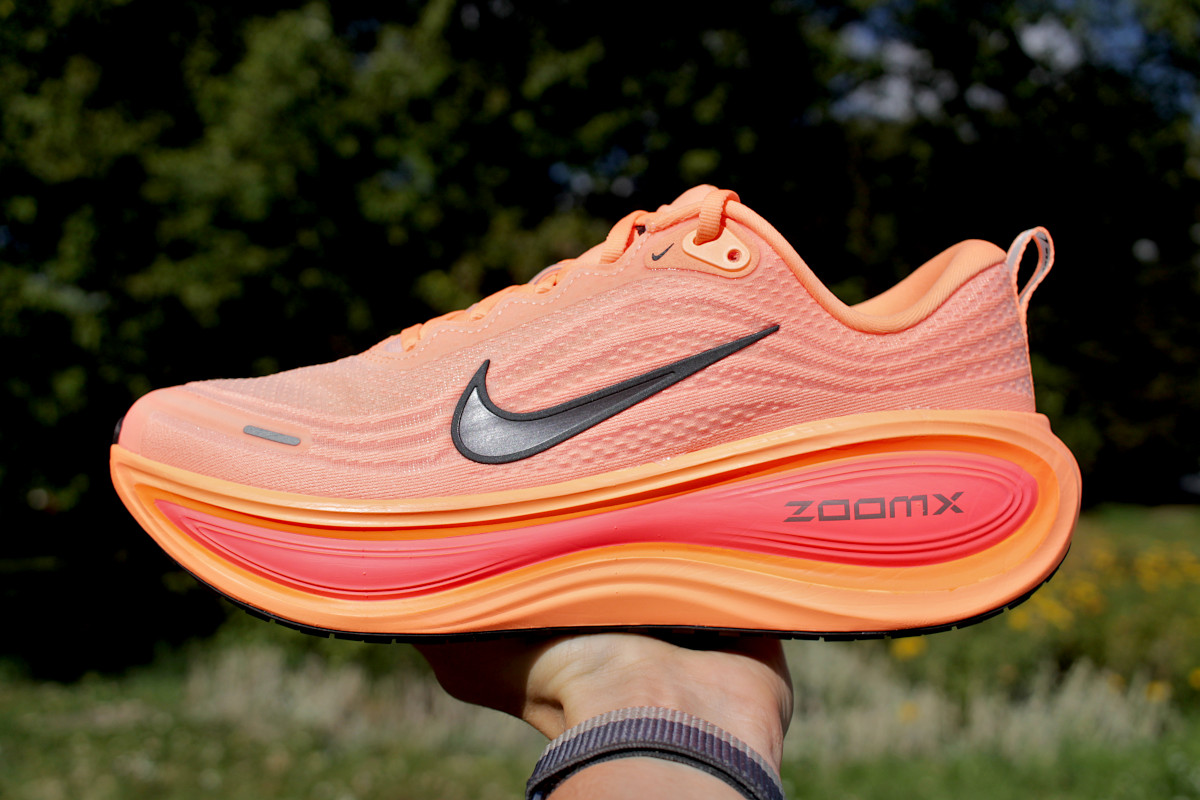The new version of Hoka’s carbon starter shoe features a lighter construction, resilient PEBA foam, and a dynamic carbon plate that combine to create a record-breaking machine. However, the minimalist EcoKnit upper and slim shape make this a shoe focused on speed rather than stability. The narrow platform and aggressive geometry may be challenging for less advanced runners. But for those who can handle it, the Hoka Cielo X1 2.0 will reward you with excellent rebound and dynamics.
Basic info
Tech specs
Purpose
The Hoka Cielo X1 2.0 is an advanced running shoe for those who prefer a combination of excellent cushioning and high responsiveness. Designed for fast training and road races, especially half marathons and marathons, but also suitable for shorter distances. Its construction supports the natural dynamics of running and helps you achieve record results. It is the perfect choice for those who want to run faster and more efficiently.
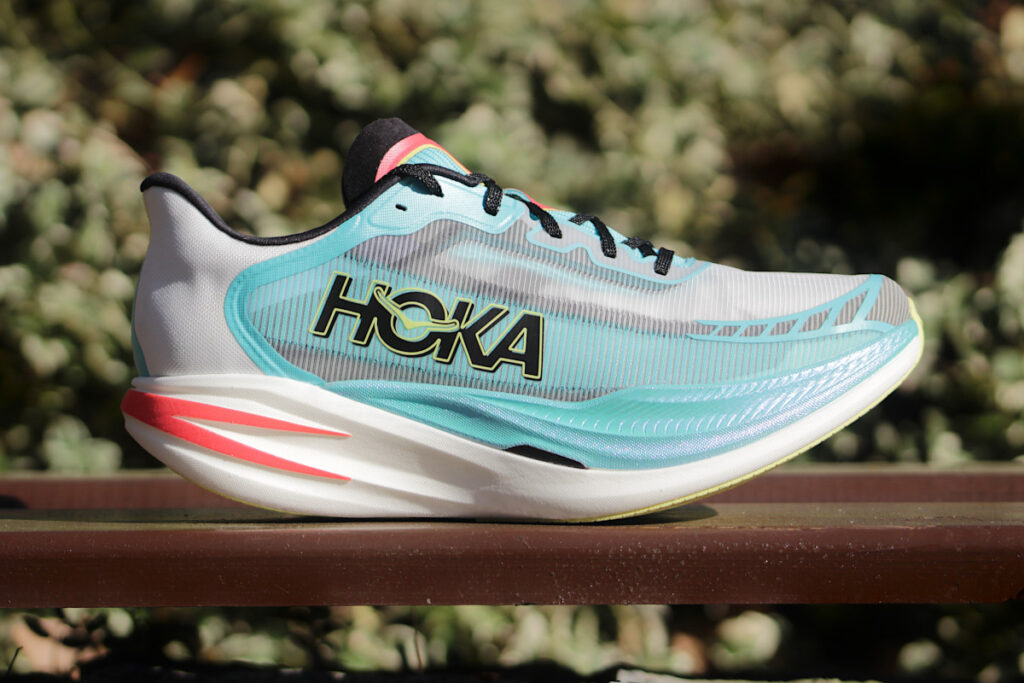
Pros
- very high dynamics
- aggressive profiling
- very high shock absorption
- breathable upper
- good heel support
- significantly reduced shoe weight
Cons
- poor rear stability
- not recommended for runners with wide feet
- high price
Hoka running shoes – lineup
Hoka has divided its running shoes into three main categories: GLIDE, FLY, and SKY, which correspond to the classic division into training, racing, and trail shoes. The Cielo X1 2.0 belongs to the FLY segment and stands out as its fastest representative.
You can find a complete guide to Hoka shoes in our guide to this brand!
| RACING | TRAINING AND COMPETITION | |
|---|---|---|
| maximum dynamics |  Cielo X1 2.0  Rocket X2 | |
| very high dynamics |  Mach X 2 | |
| high dynamics |  Mach 6 |
Similar to Hoka Cielo X1 2.0
The Hoka Cielo X1 2.0 is a shoe that can compete with the best carbon racing shoes. They all share impressive dynamics, high cushioning and lightness (which was not a strong point of the first edition of this model). If you want to know more or are looking for shoes for fast running, check out my guide to the best racing shoes on the market!
| MODEL | STACK HEIGHT (mm) | DROP (mm) | WEIGHT MEN'S (grams) | WEIGHT WOMEN'S (grams) | REGULAR PRICE (€) |
|---|---|---|---|---|---|
| adidas Adizero Adios Pro Evo 1 | 39/33 | 6 | 138 | 138 | 500 |
| adidas Adios Pro 4 | 39/33 | 6 | 200 | 175 | 250 |
| Asics Metaspeed Sky+ | 39/34 | 5 | 205 | 205 | 250 |
| Brooks Hyperion Elite 3 | 35/27 | 8 | 230 | 230 | 250 |
| Diadora Gara Carbon 2 | 40/35 | 5 | 220 | 220 | 290 |
| Hoka Cielo X1 2.0 | 39/32 | 7 | 228 | 228 | 275 |
| Hoka Rocket X 2 | 36/31 | 5 | 236 | 236 | 250 |
| New Balance Fuelcell Supercomp Elite v4 | 40/36 | 4 | 237 | 188 | 280 |
| Nike Alphafly 3 | 40/32 | 8 | 218 | 218 | 310 |
| Nike Vaporfly 3 | 40/32 | 8 | 190 | 150 | 260 |
| On Cloudboom Echo 3 | 37/28 | 9 | 215 | 188 | 300 |
| Salomon S/Lab Phantasm | 37,5/28,5 | 9 | 219 | 219 | 260 |
| Saucony Endorphin Pro 3 | 39/31 | 8 | 204 | 176 | 250 |
Midsole – cushioning and dynamics
The Hoka Cielo X1 2.0 midsole is an advanced construction consisting of two layers of elastic PEBA foam known for its lightness, responsiveness and excellent cushioning. In between is a carbon fiber plate that stiffens the structure of the shoe and adds bounce. In terms of overall construction, this shoe is similar to its predecessor.
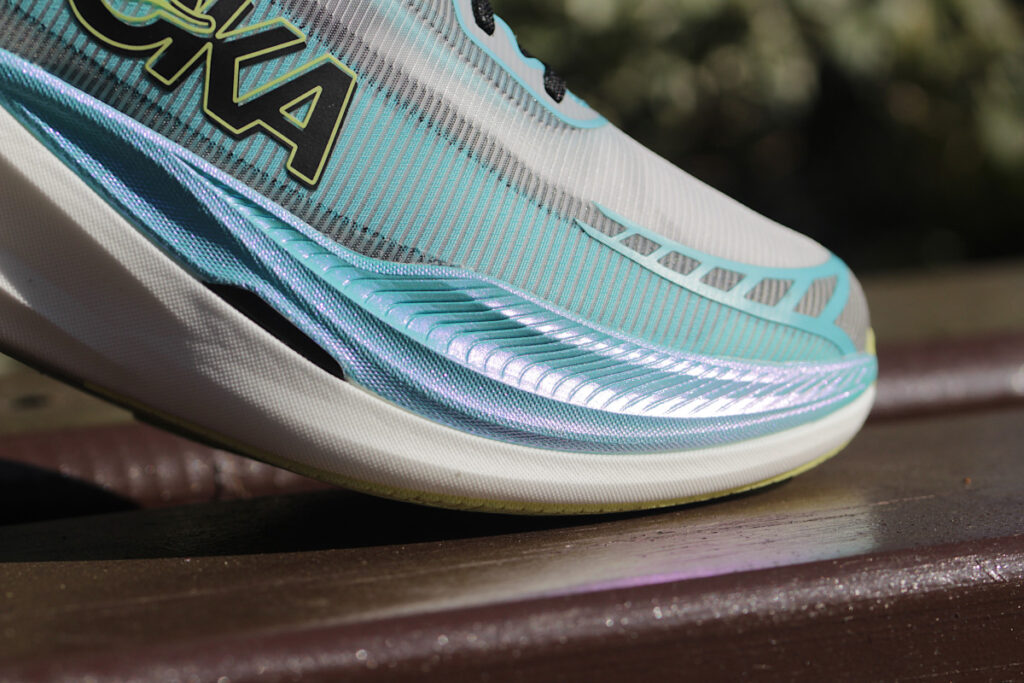
The midsole of the Hoka Cielo X1 also maintains the parameters of its predecessor, offering a stack height of 39 millimeters under the heel and 32 millimeters in the forefoot. This is just under the maximum allowed by World Athletics. It can be used legally in official competitions. Such a large amount of foam also makes for a very high level of cushioning and responsiveness, even over long distances.
As in its predecessor, a carbon fiber plate is used here, which works in the same way as in other constructions of this type. During landing, the carbon fiber flexes and absorbs some of the energy. During the rebound phase, it returns the energy and dynamically propels the foot forward. Its edges are slightly curved, which is visible from the outside. These subtle bends increase the stiffness of the carbon plate in key areas and slightly improve the stability of the entire construction.
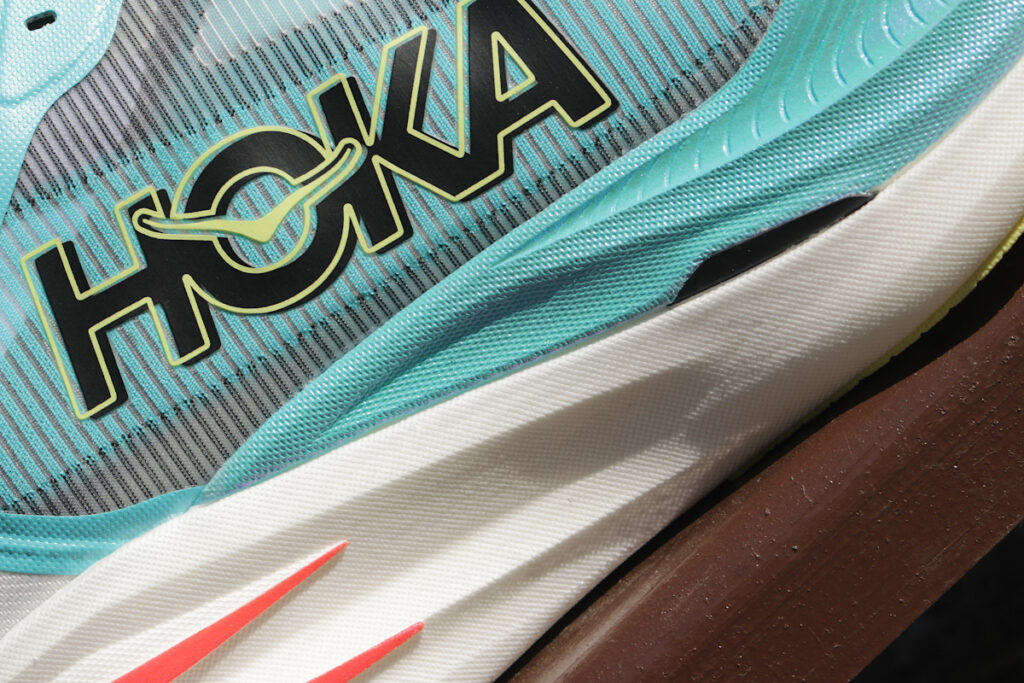
Stability is not a strong point
Stability is not the strong point of this model. Especially in the back. This is due to the rather large gaps in the midsole. This is most noticeable in the heel area, where instead of a stable and wide base, we have two foam “posts”. If you land hard on the heel, these will bend and flex quite a bit, which is not good for stability. This is not a shoe for people who want to run slowly and with a lot of heel strike. It will not be stable enough in the long run. For faster running, where the forefoot is more involved and the heel is less involved, it should be much better.
You might say, “Wait, the previous model was very similar in the heel. Yes, it was. But I felt pretty stable in the previous model for a carbon racing shoe. I miss that stability in the Cielo X1 2.0.
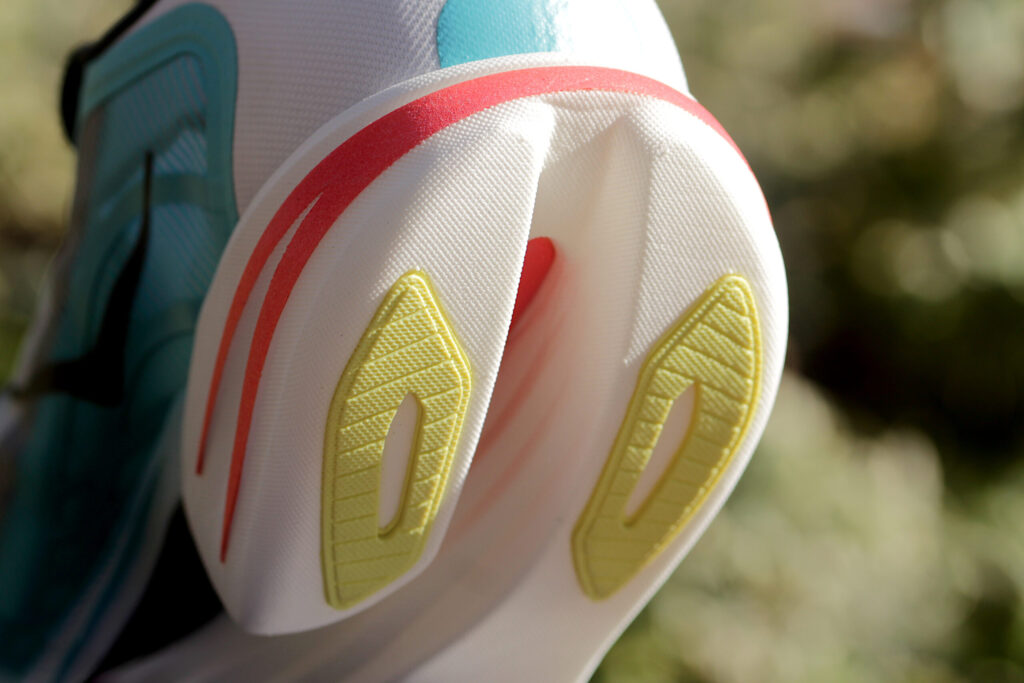
Asphalt, racing outsole
The outsole of the Hoka Cielo X1 2.0 is the result of the unique shape of the midsole. It is obvious that rubber is only used where there are no deep indentations. As befits a racing shoe, the rubber is placed mainly under the forefoot, where the pressure is greatest during running. There is less rubber in the back – just two small applications on the outside. In the middle, there is a large and deep indentation in the midsole designed to reduce the weight of the shoe. As I mentioned above, such large indentations do not have a positive effect on stability in this case.
The outsole itself is a typical flat racing construction designed for running on hard surfaces. It is 0.6 millimeters deep, but the front part has small holes that visually deepen its structure. This slightly improves grip without adding unnecessary weight.
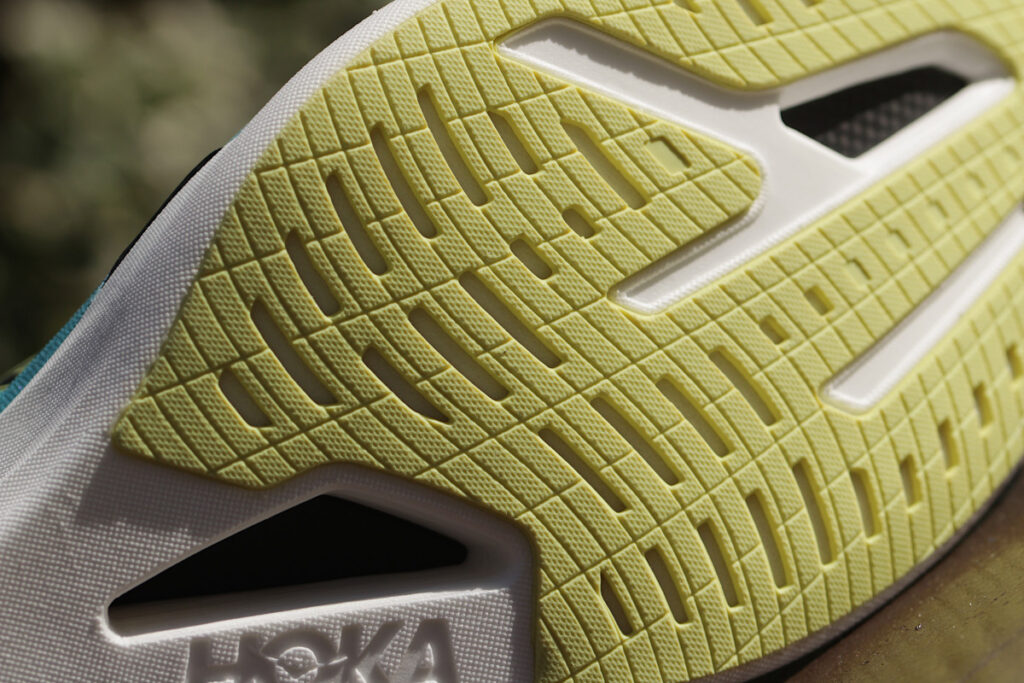
Lightweight and minimalist upper
The upper of the Hoka Cielo X1 2.0 is made of ultra-thin EcoKnit fabric, designed for lightness, breathability and a touch of minimalism. The material is not very elastic and the shape of the upper does not have any excess space. The construction focuses on fitting and holding the foot, rather than the freedom of movement typical of training shoes.
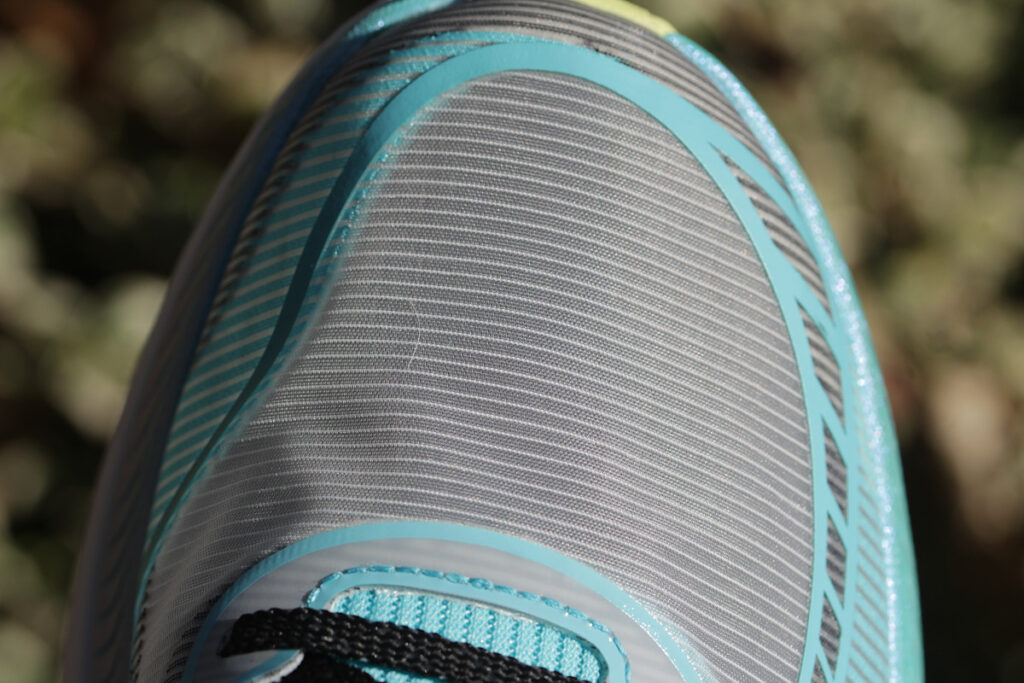
The front of the shoe is not the widest. The measured width at the widest point is only 99.1 millimeters, which makes it even narrower than the previous version, which was already relatively slim. So if you were hoping for more space in the Cielo X1 2.0, you may be disappointed. This model is designed for runners with narrow or normal feet who prefer a snug fit for a better running experience. Runners with wide feet or those who like more space in their shoes are unlikely to be impressed.
The heel counter of the Hoka Cielo X1 2.0 is also minimalist in design. It is more traditional than its predecessor, which can be seen in its finish. Instead of a thin, flat and stiff material, we have a soft, sponge-like edge. In my opinion, this is a safer solution for most runners. It makes the heel comfortable and provides subtle support. The result is a foot that is held in place, but still has some freedom for natural, smooth movement.
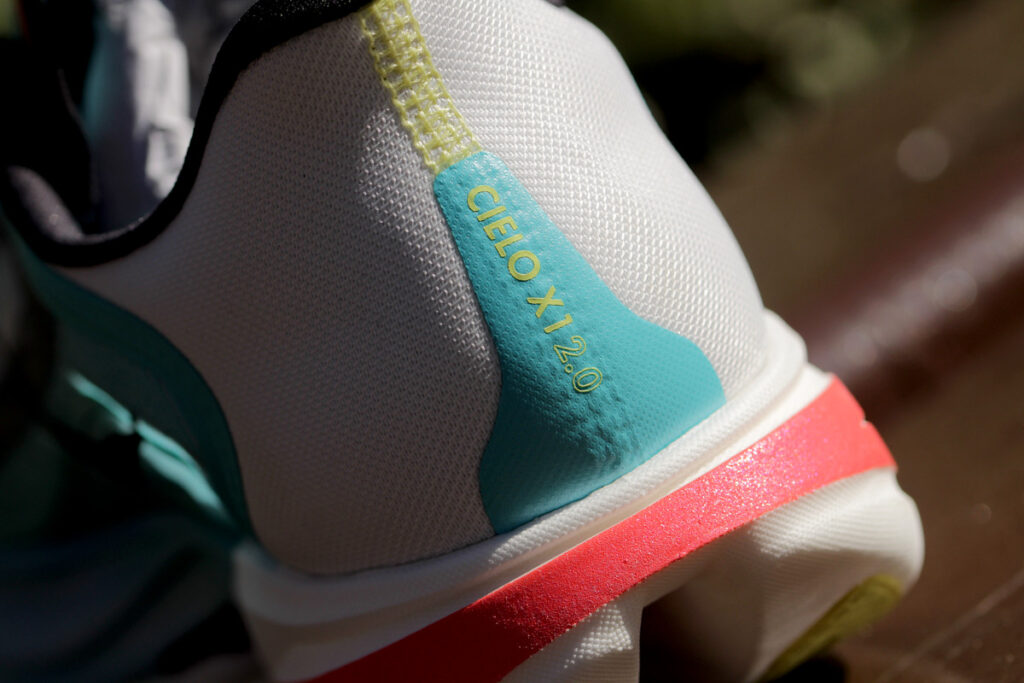
Lightweight
One of the biggest drawbacks of the first edition of the Hoka Cielo X1 was its weight. It was definitely too heavy for a serious racing shoe. As a reminder, the previous model weighed in at a whopping 264 grams in size 9.5 US, and in my size 12 US it reached 297 grams, which put it at a disadvantage to the competition, to say the least. More simply put, it was the heaviest of the top carbon running shoes.
With the Cielo X1 2.0, Hoka has clearly worked on this aspect. The new version is much lighter – according to the manufacturer it weighs 228 grams in size 9.5 US and only 249 grams in my size 12 US. This difference means that the shoe can finally compete with other carbon racing shoes in terms of weight. It is not the lightest in its class, but it is now within the norm without losing any of its dynamics.
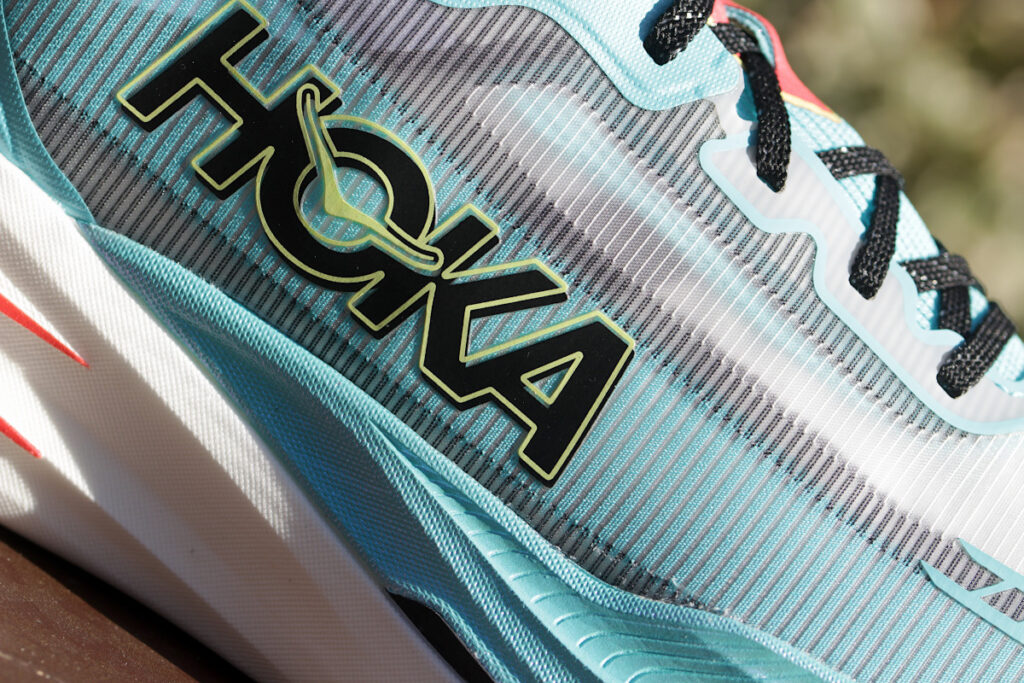
Summary
The Hoka Cielo X1 2.0 is a lightweight and dynamic running shoe that has undergone several significant changes from its first edition. A major improvement is the significant reduction in weight, making it a lightweight construction that is now on par with competing models. Other key benefits include the aggressive carbon fiber geometry that supports fast running and the breathable EcoKnit upper. However, the shoe is not without its flaws – limited stability makes it a challenge for less experienced runners. This model is primarily designed for those who are looking for maximum speed and can exploit its potential.
